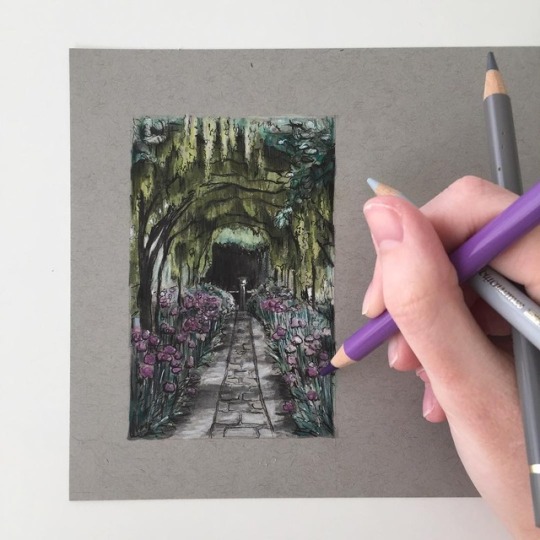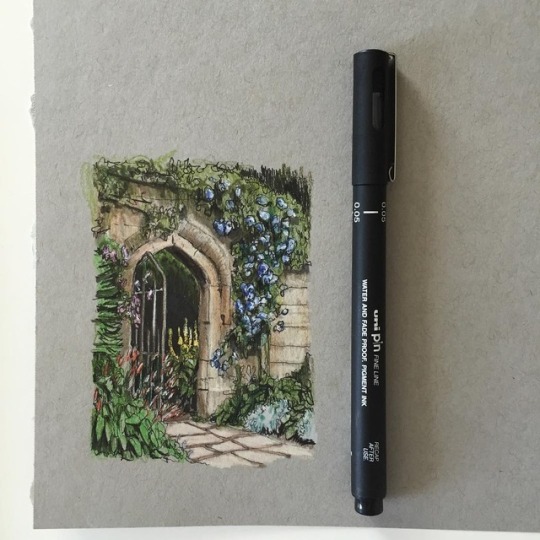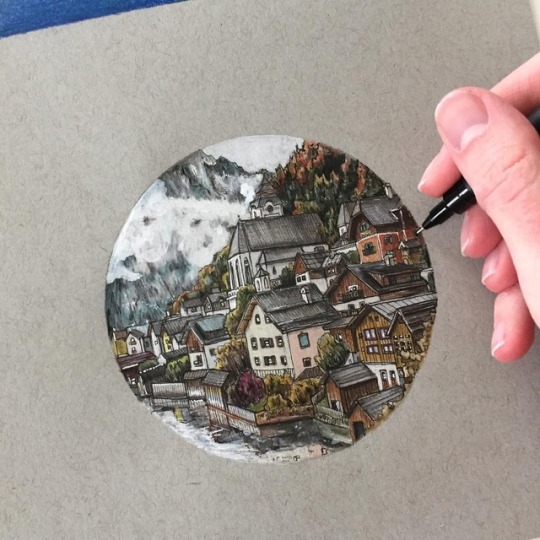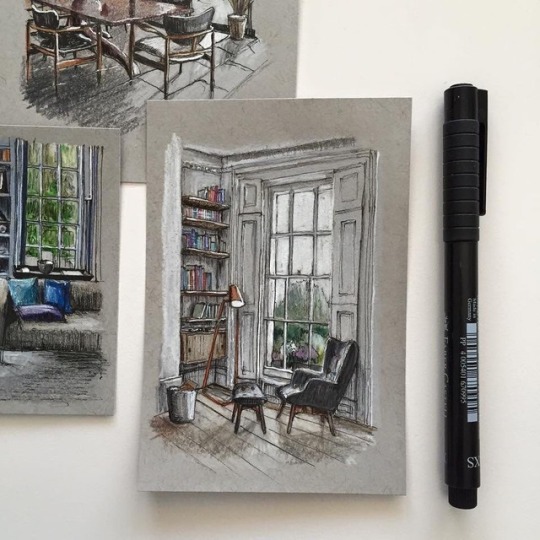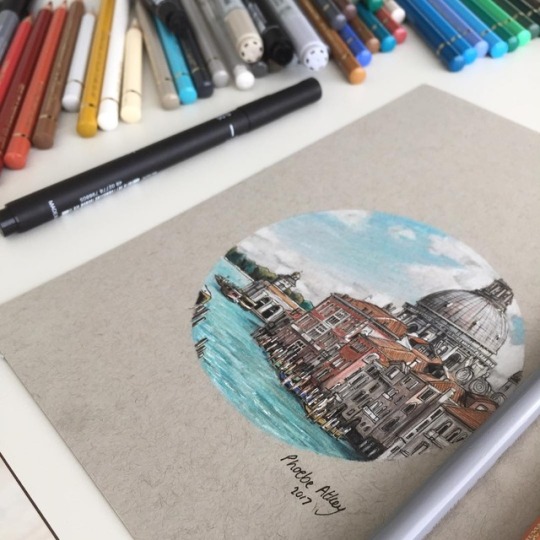22. College Senior. Florida Catholic. Mumford and Sons fan. If you have any questions or just want to chat please don't hesitate.
Don't wanna be here? Send us removal request.
Link
I cried the first time I went to a traditional Latin Mass.
It would have been difficult for me not to; I was an emotionally volatile 20-year-old college kid studying theology who loved the “smells and bells” that Catholicism offered—and man, there were a lot of bells and smells going on while Mozart’s “Requiem” carried the liturgy.
After that, I was hooked. A group of friends and I asked a Jesuit, the late Robert Araujo, if he would learn how to say Mass in the extraordinary form (how the pre-Vatican II traditional liturgy has been known since 2007) so we could have it on campus. He did, and a few of us were trained on how to be altar servers for it. To what I imagine was the shock and dismay of many of his brother Jesuits, we were able to celebrate the traditional Latin Mass at the Jesuit residence. To this day, one of my most-treasured books is a St. Edmund Campion Missal & Hymnal for the Traditional Latin Mass that Father Araujo gifted me.
The traditional Latin Mass (I will refer to it after this as “the Latin Mass” for simplicity’s sake, though of course the current Mass promulgated after Vatican II can be and is also celebrated in Latin) ) never became the primary form of liturgy that I attended, and eventually I stopped going to it altogether sometime after college. But it nevertheless made a significant impact on my spiritual life at a critical, impressionable point in my formation. With the news that Pope Francis has greatly restricted the celebration of the Traditional Latin Mass, I have been reflecting on what the Latin Mass gave me and my spiritual life, good and bad. First, the good: What I saw in the Latin Mass was an unparalleled reverence for the sacred. It hammered home, for the first time, that I was part of a celebration of “these sacred mysteries.” Whereas previously I had attended a lot of parishes that couldn’t bother to get their sound systems working, or that were reliant upon the whimsical improvisations of a well-meaning priest, the Latin Mass was choreographed with the care and attention to detail of a Broadway performance. This care for detail, far from seeming stuffy, instead conveyed a deep and passionate love for what was holy. And even more importantly, it invited me to join in that love by taking similar care in my own prayer and participation in the Mass. It gave me a hunger for “the beautiful,” despite my eurocentric understanding of beauty. There were no felt banners or tacky papier-mâché art in sight. To that point, when the Met Gala chose “Heavenly Bodies: Fashion and the Catholic Imagination” as its theme, do you think they were looking to 1970s Catholic aesthetics for inspiration? But do you know what else the Latin Mass did for me? It made me bitter and arrogant. It made me think I had the more ancient, therefore holier, therefore better way to practice my faith. I would make jokes about the “Novus Ordo” and speculate about the day the church might even do away with vernacular liturgy, considering it a failed experiment. In one example I find particularly galling and embarrassing, when I attended my regular, non-Latin Mass, instead of praying the liturgy I would actually sit there and count all the deviations from the rubrics that I could notice. I found a lot of security in the (very flawed) idea that “Catholicism is an ancient, unchanging faith. This is the most ancient, unchanging way to live it out.” It took me some time and prodding and prayer to realize that this security wasn’t in or from God, but rather about reassuring myself that I had an answer that I would never need to change (a very attractive prospect to someone whose world feels in constant flux!). We are called to faith that the truth revealed by God in Christ is eternal and unchanging, but as Pope Francis has pointed out repeatedly (like a good Jesuit spiritual director), rigidity and possessiveness about how to express that truth are not authentically free expressions of faith. One of the beautiful parts about the celebration of Mass is that it links us to the communion of the church, extending across both time and space. And the Tridentine Mass, representing more than 400 years of that celebration across history, conveys some aspects of that communion powerfully. But unfortunately, some uses of it in our time have become a point of rupture in that communion as well. A more widespread celebration of the Traditional Latin Mass was an initiative that “intended to recover the unity of an ecclesial body with diverse liturgical sensibilities,” Pope Francis explained in his letter explaining his motivations for the motu proprio “Traditionis Custodes.” However, in effect it “was exploited to widen the gaps, reinforce the divergences, and encourage disagreements that injure the Church, block her path, and expose her to the peril of division.” When I read those words, I knew it was true in my own personal spiritual life. It is a great sadness that it was exploited. And if the pope and the bishops around the world who responded to his questionnaire on this topic saw this division throughout the church, Francis was right to respond. But, you may object: I am not a smug pseudo-schismatic who hates the pope, and I love the Latin Mass! Here is the difficult thing being asked of you by the Holy Father: There are many good reasons to love the Latin Mass, but given that it has become a demonstrable cause of disunity and rancor within the church, we have to look for the gifts it gives elsewhere. Pope Francis readily admits that he agrees with Pope Benedict XVI that “in many places the prescriptions of the new Missal are not observed in celebration, but indeed come to be interpreted as an authorization for or even a requirement of creativity, which leads to almost unbearable distortions.” So, one task at hand, and a possible place of common ground for divided Catholics, is to focus on making regular Masses a bit more reverent. After all, the good things that I received from my encounter with the Traditional Latin Mass should have been available to me in the Novus Ordo, too. All good liturgy, in whatever form or language, should engender desires for the good, the true and the beautiful. But there is another, deeper and more difficult spiritual challenge here. The desires that the liturgy awakes and satisfies in us—and for some of us, the desires that the Latin Mass especially nurtured—are good, holy and necessary. But those desires also point beyond the liturgy itself. At the risk of sounding glib, what would it mean if we could find the spiritual goods that the Latin Mass taught so many in other places? What if we were able to discover a passion for beauty from our service to the poor? If we could develop a mature sense of wonder and awe from caring for creation, our common home? If I am honest, those feel like daunting questions that I don’t really know how to respond to. I only know that I think I’m being called to ask them. Answering them, I imagine, will take patience, practice and a lot of prayers—in whatever language they’re said.
83 notes
·
View notes
Text
Need to remember this in prayer!
Five minutes a day is better than none.
One verse of scripture is better than nothing.
20% is better than 0%.
Brushing your teeth at least once every day is better than none at all.
A few hours of sleep is better than none.
A few minutes outside for fresh air is better than none.
Writing a few paragraphs of the essay today is better than procrastinating till later.
Doing something is better than nothing (of course there is exception for some cases).
Do things at a pace which makes you comfortable whilst allowing you to make progress.
You can do this!
177K notes
·
View notes
Text

A commission for @bewildered-but-determined of Venerable (soon to be blessed!!!) Archbishop Fulton J. Sheen!!
Thanks so much for giving me the opportunity to draw him ☺️
285 notes
·
View notes
Photo




“Sacra Conversazione Altarpiece”, oil, 68x48 inches— at St. Joan of Arc Catholic Church. - Neilson Carlin (sketches and final work)
41 notes
·
View notes
Photo

Immaculate Heart of Mary, refuge of sinners, I beg of you by the infinite merits of the Sacred Heart of Jesus, and by the graces God has granted to you since your Immaculate Conception, the grace of never going astray again. Mother, keep me, a sinner, constantly bathed in the light of your Immaculate Heart. Amen
114 notes
·
View notes
Photo

Immaculate Heart of Mary, Kim Vandapool (2011)
2K notes
·
View notes
Photo




Some of my favourite paintings of Jesus and Joseph except I have no idea who painted them :(((((
657 notes
·
View notes
Photo

First Comes Love, then Comes Apologetics
A friend of mine named Luke messaged me recently. He was in excited disbelief over his sister returning to the Catholic Church after decades away.
We met for lunch and I asked him to tell me more. They had grown up in a nominally Catholic family, but their parents didn’t believe very strongly and ultimately they divorced. Luke graduated from high school and also decided to leave the Faith. He started living a “normal” life of hedonism and sin.
His sister encountered various personal problems in her life as a young adult, but instead of leaving Christianity altogether she fell in with a group of very kind Protestants. They welcomed her into their hearts and their church, and she became a “born-again” Evangelical.
Soon family reunions got awkward, as Luke’s sisters spent most of the time making everyone uncomfortable by trying to get them to believe in Jesus. They responded as many nominal Catholics would have: by telling her they already knew about Jesus but weren’t interested in going to church, Catholic or otherwise.
Eight years passed, and Luke himself had a reconversion. He went through an RCIA-like program for cradle Catholics at his local parish, and his life began to change. But a personal conversion was not enough: he still had to deal with his sister and her increasingly anti-Catholic attacks.
He began reading apologetics books, including mine, and he started plying some of the arguments with her. She was not moved in the slightest. He felt baffled by how ineffective they were, since he knew them to be true and powerful.
One day on the phone she said to him, “You never come and visit me. Ever since Dad died, I’ve wanted my big brother to comfort me, and yet you only have time for yourself and your youth group, a bunch of kids you’re not even related to!” (Luke had started volunteering at his parish’s youth group as an adult mentor.)
Luke was angry after this conversation, and for several weeks he stewed about it. Then one day the Holy Spirit showed him that his sister’s accusations contained a good deal of truth. He had not been there for his little sister. He had not been a good big brother. Yes, he’d had a conversion, but in this area of his life he was lacking.
Luke called his sister, and she was ready for him to start making excuses. Instead, he told her, “You were right about me. I’ve not been a good big brother. I’m so sorry. Will you please forgive me?”
She forgave him, but something else happened that he wasn’t immediately aware of: his sincere apology melted the barrier between them, and between her and the faith of her childhood. Over the next month, they had long conversations in which she asked questions instead of arguing. She wanted to know about Luke’s Catholicism and why it made sense, and he began with the canon of Scripture. It all fell into place for her starting from there.
Then one Sunday morning she called him and said, “Guess where I am? I just went to Mass at our old parish!” In less than one month after his apology, in spite of having absorbed a decade of anti-Catholic Protestant rhetoric, his sister returned to the Catholic Church.
Although Luke was thrilled, he also cringed, wondering if his sister had received the Eucharist without going to confession. It turns out she had, but rather than pointing this out to here immediately and possibly taking all the wind out of her new Catholic sails, he drove three hours to visit her for the week.
While there, he told her that he planned to go to confession and asked if she wanted to come. She asked him why he was going, and he told her that before he received Jesus in Holy Communion, he wanted to be forgiven of his sins. They talked about confession and its biblical basis in John 20, and she told him that she wanted to go as well.
She called the parish and made an appointment with the priest and went to her first confession after twenty years.
In the case of my friend Luke and his sister, it wasn’t a theological argument that was most needed, but a demonstration of love from a big brother. The apologetics came after.
I have seen this so often: the message is only valued as much as the messenger is respected. People need to see that you care, that you love them, before they can weigh the evidence you present.
141 notes
·
View notes
Text
In Slavic folklore, wheat fields are considered safe from demons, as demons would not dare go near to wheat which will be turned into the Eucharist.
868 notes
·
View notes
Photo

It took a few days to find the perfect time to give it to him but we finally gave him his First Communion gift. My husband and I have given each of the boys a chalice to mark their special day. We tell them that if God calls them to the priesthood that they can use it then and if God calls them to marriage that they can gift it to the priest who celebrates their wedding Mass and he can hopefully use it for their wedding. Right now this boy is set on being a priest that grows food for the poor and also digs up dinosaur bones. 😊 (ETA: I can’t take credit for this idea! A good friend did it with her boys and I thought it was so beautiful!) Via @betterthaneden 🕊 #CatholicConnect #Catholic #Catholicism #CatholicChurch #Vatican #Vocations #PrayForVocations #catholicfamily #firstholycommunion #domesticchurch #vocations #whateverGodwants #evenpaleontologistpriests
110 notes
·
View notes
Photo

Take pride in the title of “woman,” take pride in the fact that you were born not a man, but a woman, for the Lord has given you a heart much better than that of men, a heart receptive to all that is holy, a heart soft as wax, feeling the truth of Christ.
You live not by a cold mind, as do men, but you live by the sense of the heart, for the human heart, together with the mind, is an organ of perception. And the perception of the heart is higher than that of the mind.
+ St. Luke of Simferopol
878 notes
·
View notes
Text
I don’t know if you can feel God’s presence in your life right now or not, beloved. But please know that, regardless of your feelings, He’s there. He’s with you. And He’s not going anywhere.
9K notes
·
View notes
Text
If you’re feeling disconcerted about how fast things are changing in your life, about how much you are changing— remember that the Jesus of your yesterday, is still the same Lord over your life today.
If you feel alone, and you’re crying out to God to be felt while you’re trying to deal with all the decisions you have to make, remember that He is still with You. There may be no whispers of direction during worship sessions, trust His word, beloved, when He told You that He’ll never leave you nor forsake You.
The God we know when we are at the mountaintops of our faith, is the same God that holds us together when we’re clumsily making our way through narrow valleys. Trust Him, love.
833 notes
·
View notes
Text
Seven Reasons Why We Need to Pray
Taken From: The Love that Never Ends: A key to the Catechism of the Catholic Church
1. Prayer keeps us mindful of our spiritual natures
Prayer is the antidote to the false contentment of self-indulgence
It keeps us humble and detached
It makes us remember the glory of God and the beauty of sanctity
It stretches our gaze beyond the immediate cravings and stimuli
2. Prayer enables us to surrender our will to God
Thy will be done
Prayer is a filter that clarifies what is truly good for us
It gives us a sense of Divine Providence
It can soften stubborn pride
God wants for us more good than we can possible want for ourselves
3. Prayer purifies and empowers human freedom
All of our vital powers can be developed and stengthed by union with Jesus
“the more one does what is good, the freer one becomes” CCC 1733
A life of prayer is a bedrock of strength that allows us to make the difficult and right decision
Prayer directs our freedom to God
4. Prayer enlightens our self-knowledge
The first step in holiness is the acknowledgement that we are in need of mercy
“Without the knowledge Revelation gives of God we cannot recognize sin clearly” CCC 387
Prayer gives us the realization that our destiny lies beyond our natural powers, and that we need real forgiveness
5. Prayer disposes us to receive divine gifts
We need an openness and suppleness to share in the divine life
Prayer makes us attentive, watchful and alert to the things of God
Petitionary prayer is a real but secondary cause of the things for which we pray
Prayer attunes us to the truth that God tells us in subtle ways and whispers
6. Prayer fulfills our highest vocation
Man alone is called to share in truth and love the life of God. He was created for this end and it is the reason for his dignity
The communion with God in prayer is a foretaste of the beatific communion with God in Heaven
Prayer expands, perfects, and completes us
7. Prayer unites us to God
Prayer is a vital and personal relationship with the living and true God
The Lord longs to be united to us through the union of hearts, and prayer accomplishes that union
“The medicine by which God willed to heal the whole world is humble, constant, holy prayer” St. Catherine of Siena.
Source
300 notes
·
View notes



